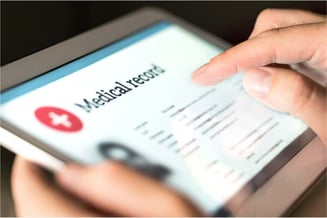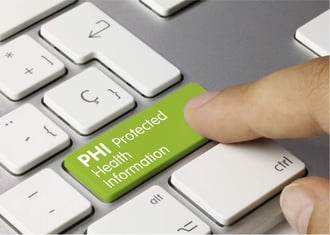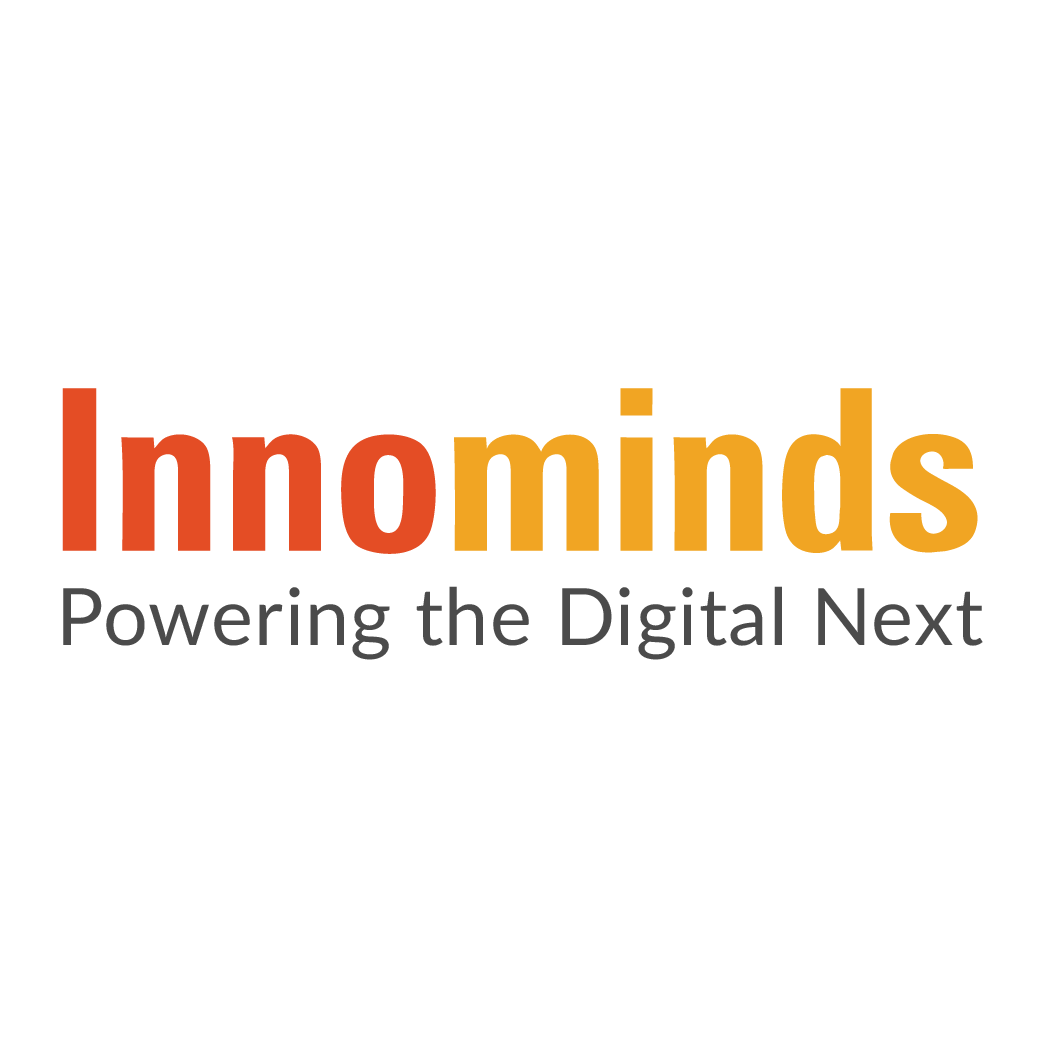
The amount of global healthcare data is expected to increase dramatically by the year 2020. Early estimates from 2013 suggest that there were about 153 exabytes of healthcare data generated in that year. However, projections indicate that there could be as much as 2,314 exabytes of new data generated in 2020. – Statista
The healthcare database is much more enormous than you would anticipate, as it could takes up to 30% of the entire world’s stored data (Daniel Faggella, 2018). Putting even a sliver of this data into a healthcare system might entail humongous efforts in data classification, segmentation, storage and management.
Data segmentation is challenging across various patient aspects such as demographics, treatments, medications, lab results, and also financial information, before making it ready for consumption. More data storage implies more computing power. Data analysis and data privacy regulations make it even sophisticated. And, it is harder to share health information in a socially acceptable manner with regulations and privacy laws in place.
Thus, looking for an economically and socially viable solution to healthcare data sharing leads us to choose cloud-based systems with strict compliances. It is scalable, less expensive and more efficient to cater to the growing need for a digitized healthcare information and management systems.
Digital healthcare management started trending since the demand for accessible healthcare reached its peak in the 90s and the sheer number of people suffering from illnesses started to increase, globally. The Lancet Global Health GBD (Global Burden of Diseases) makes us re-asses how unprepared we were for COVID-19, as it reveals that rising chronic diseases and public health failure fuelled the pandemic.
This calls for ways to manage health where medical interventions take up less time and makes patient health status information and history accessible to health professionals and researchers without going through complex processes. At a broader level, at times, it may also mean that a consultation with a doctor could become superfluous to an extent.
Industry studies by companies such as Deloitte reveals that improving the health of a population requires new care models and technologies to address the drivers of health, enable early diagnosis, and monitor response to treatment.
 These new care models are giving the patients and immediate care givers a means to avoid uneventful health diagnostics that take up precious hours and impair patient comfort. These models have the potential to take away full-time dependency on expert medical care, especially in cases of chronic health issues through IoT device information and exchange. Health information systems can provide information on the best treatment and care options for the patient and caregiver. They also enable care professionals with the necessary materials and tools to prescribe better care methods.
These new care models are giving the patients and immediate care givers a means to avoid uneventful health diagnostics that take up precious hours and impair patient comfort. These models have the potential to take away full-time dependency on expert medical care, especially in cases of chronic health issues through IoT device information and exchange. Health information systems can provide information on the best treatment and care options for the patient and caregiver. They also enable care professionals with the necessary materials and tools to prescribe better care methods.
Thus, the quest for digital healthcare solutions, utilizing health data to make informed decisions to improve patient outcomes, leads us to choose a cloud based EHR solution provider.
But what specialities make these EHR solutions so efficient that they can assist doctors in making better treatment decisions and increase treatment efficiency?
Specialties of a cloud-based Health Information Platform (HIP)
Health information technology platforms or cloud-based EHR solutions can influence numerous areas of healthcare including research and socioeconomical ventures to reduce the burden on patients and supporters. It’s possible through the innate specialties of these information systems, like healthcare data analytics, that it profits not only the individual but also the wider social and anthropological causes. Therefore, these systems and platforms can create a disruption in many of these medical and economic practices.
Some of the salient features that differentiate traditional healthcare and modern, digitized, cloud-based health information management platforms are as follows.
EHRs (Electronic Health Records)
 EHRs are a new form of digital patient record that doesn’t stay within a hospital institution or a particular medical practitioner, as with EMRs (Electronic Medical Records). They are more extensive and offer a consolidated display of patient health history, history of present illness (HPI), and other variety of medical related data that can be shared with many parties instead of one.
EHRs are a new form of digital patient record that doesn’t stay within a hospital institution or a particular medical practitioner, as with EMRs (Electronic Medical Records). They are more extensive and offer a consolidated display of patient health history, history of present illness (HPI), and other variety of medical related data that can be shared with many parties instead of one.
EHR's origin arises from a long-standing requirement for comprehensive and independent medical care for reasons such as expense management, information shortage, and lack of self-sufficiency in all things related to medical care. From Computer-based Patient Records (CPR) back in the 90’s which were precedents to EMR and later EHRs, patient health records sharing was subject to restraints. Private interests of institutions or financiers can restrict patients to particular hospitals that may have failed to provide adequate, or say, quality care. They gave no control to the individuals over their own private health information.
Even when patient expectations are met, accrual of such a record of health assists doctors to keep track of patient progress in terms of drug effectiveness, responses to treatments and comparison with other methods of treatments. It means a wider array of resources that will help in better decisions regarding which routes to take as they go forward in the treatment and also provide better care for the patient.
Health data exchange between practitioners
As mentioned, the ability to share information related to medical health history of a patient, in forms such as EHRs, is a major driver in the necessity for cloud-based information platform. Even a single patient’s health data can take several MB of data per year, and hospitals generate several petabytes (PB) of data each year. This data is from X-rays and other imaging methods, doctor letter, test results, omics and device collected data. On top of this, the data fields in itself will span across several columns of quantifications such as milligrams, percentages, volumes etc. Hence, retrieving data for specific needs has to be managed through information systems.
 Another reason why cloud-managed systems become beneficial for health data exchange is the storage difficulties of such huge data. There are barriers in terms of preserving and carrying this data when it is under a single ownership. Duplicating and maintaining copies in a management system with data protections in place is possible with a cloud-managed system. They also enhance co-operative treatment models and collaboration among practitioners. The end result is better care for the patients.
Another reason why cloud-managed systems become beneficial for health data exchange is the storage difficulties of such huge data. There are barriers in terms of preserving and carrying this data when it is under a single ownership. Duplicating and maintaining copies in a management system with data protections in place is possible with a cloud-managed system. They also enhance co-operative treatment models and collaboration among practitioners. The end result is better care for the patients.
Cloud health information management solves the problems of data restrictions from a single point of authority. Patients have ownership of data and they can share it to authorized professionals.
Cost-factor and financier management
Patients can save money and efforts in going through repeat processes and doctor consultations to get satisfying diagnosis for their diseases. Since every history is recorded and consolidated from various sources, a single doctor assistance can identify disease symptoms, match them with other such samples. This ensures better treatments avoiding costs through travel and multiple tests, while reducing the time and effort.
Health information systems help in better patient outcomes with faster processes and additional resources such as IoT device measurements or patient genomics. For the practitioners too, there is a reduced need for repeat health tests or the added effort in gathering past data. This means more patient turn arounds in a day.
 With rising healthcare costs across the globe, most patients rely on external payers and financiers for their healthcare costs. This implies that the health data is not just used by patients and their healthcare providers but also the insurance providers or other finance providers. For the cost providers, duplicating procedures or tests, or any attempts at fraud can cost quite a lot. This makes health information systems quite handy for them, too, in that they can trace past treatments and gather health history of patients.
With rising healthcare costs across the globe, most patients rely on external payers and financiers for their healthcare costs. This implies that the health data is not just used by patients and their healthcare providers but also the insurance providers or other finance providers. For the cost providers, duplicating procedures or tests, or any attempts at fraud can cost quite a lot. This makes health information systems quite handy for them, too, in that they can trace past treatments and gather health history of patients.
Healthcare data protection and regulations – HIPAA compliance
In spite of the various advantages that SaaS based platforms offer to health data storage and sharing, the security and privacy issues are a major cause of concern. The implementation environment demands added security features and layers of security that will guard such sensitive information. In a service-oriented architecture these layers of security needs implementation at the application layer, data layer, communication layer and the user layer. To be more specific, multilayer architecture security enforcements across several layer such as application, presentation, session, transport, network, data link and physical layers are mandatory.
 Furthermore, healthcare data sharing is guarded by security regulations that cannot be easily surpassed. And, laws are passed to give more control over personal data to individual patients. At the same time, they provision for sharing collective data to governmental use for prevention and control of diseases, and general public health improvements.
Furthermore, healthcare data sharing is guarded by security regulations that cannot be easily surpassed. And, laws are passed to give more control over personal data to individual patients. At the same time, they provision for sharing collective data to governmental use for prevention and control of diseases, and general public health improvements.
The acceptable step to take here is to adhere to state/ government approved adherences such as the HIPAA compliance. HIPAA privacy rules bind treatment providers, payers, operators and businesses to be compliant with the terms in Protected Health Information (PHI) sharing and use. This applies to all computerized health data systems such as labs, EHRs, Computerized Physician Order Entry (CPOE), radiology and other tests entry, etc.
There are restrictions to the transfer, removal and disposal of data, on top of requiring encryptions and additional security measures to the stored data. At the same time, they allow for secure sharing of data with trusted partners and organizations.
More than just individual health care
Governments and health care agencies are stressing more on health information exchange for reasons such as disease control and management, analysis of disease patterns, researches into patient data and treatment method efficacies and more. Disease profiling from these researches will profit in identification of disease emergence and patterns. They can outline measures to prescribe preventive healthcare.
Besides, patients can contribute to human genome projects and researches through health data exchange programmes. Such data can become invaluable in future researches that can contribute significantly to answering various disease related queries.
With newer analytics methods such as predictive analytics, patient’s health statuses can be evaluated earlier. They can also analyse patient behaviour related to drug intake, drug discipline and number of clinic visits, etc. These analytics better treatment planning among practitioners and create newer treatment models.
Innominds assists health information platforms to achieve the best patient outcomes
With long-standing expertise in working with healthcare platforms and service providers, whether in IoMT or health information management systems, Innominds helps healthcare and MedTech companies meet digital transformation goals.
When our client approached us with their health information management solution proposal, Innominds created the web portal as well as mobile iOS and Android applications for them. This provided them with the MVP to kickstart their operations.
With integrations with health data exchange platform, Epic Systems, and information management platform BlueButton Plus, Innominds ensured that the client experienced the best data sources to complement their system.
For a complex information system such as theirs, the client also required document solutions support, like Napersoft CCM Document platform. This would manage communications across businesses and create on-demand documents for distribution.
We also made the client platform HIPAA compliant through security implementations such as automatic log-off, de-identification, encrypted storage and encrypted transmission of information, etc.
As a result, the client provided their users – patients and healthcare providers – a cloud-based EHR solution with the ability to exchange valuable records of information in the form of EHRs and EMRs. They make life easier for patients, the elderly, caregivers, payment providers and healthcare practitioners with better patient outcomes and to search for better treatment options.
Innominds Edge –
Innominds is an established leader in building IoT and IoMT devices that track and measure patient health through smartphone devices, wearables and other electronics. These devices can gather information for the healthcare information systems and platforms, for use by patients and professionals.
To easily integrate your platform with other information systems, develop and deploy MVP platforms and provide digitized healthcare assistance that are HIPAA compliant to your customers, speak to our team!




